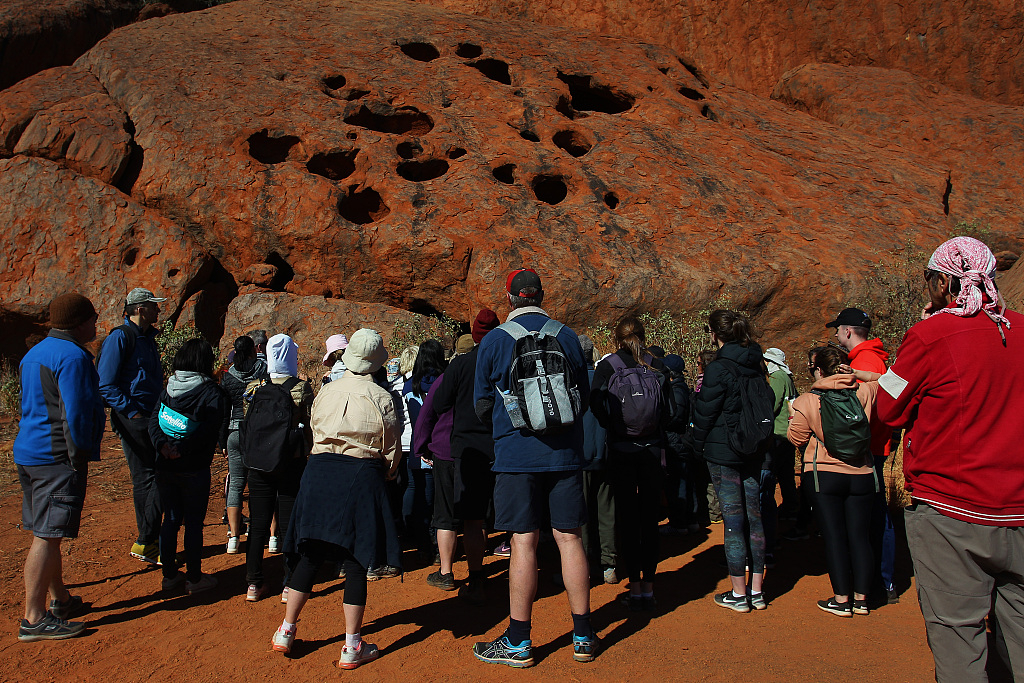A number of tourists have flocked to climb Australia's sacred giant monolith Uluru before a climbing ban takes effect on October 26. The ban is intended to show respect for cultural practices, protect the site from the environmental damage, as well as ensure visitors' safety.
Australia's Uluru, also known as Ayers Rock, is considered to be a place of spiritual significance by its traditional owners of Uluru — the Anangu Aboriginal people, who have implored tourists not to climb for many years.
According to the BBC, only 16 percent of visitors to Uluru actually climbed it in 2017 — when the upcoming ban was first announced, but that number has surged as the ban closed in. The ABC reported there were an additional 10,000 visitors to Uluru-Kata Tjuta National Park per month in the six months leading up to the closure.
Since the 1950s, a large number of people have died on Uluru due to accidents, dehydration and other heat-related events. For instance, a Japanese tourist died while attempting to ascend one of the steepest parts of the rock in 2018.

Visitors commence the Mala Walk trail at Uluru on August 12, 2019 in the Uluru-Kata Tjuta National Park, Australia. /VCG Photo
Visitors commence the Mala Walk trail at Uluru on August 12, 2019 in the Uluru-Kata Tjuta National Park, Australia. /VCG Photo
Standing at 348 meters, Uluru is higher than the Eiffel Tower and London's Shard of Glass. The climb is steep and can be slippery. In addition, temperatures in the area can also reach 47 degrees Celsius in the summer.
Tourism Central Australia CEO Stephen Schwer also asked potential visitors to think about the purpose of their trip.
"If people are wanting to get involved in this mad rush to climb the rock, I would ask them to be circumspect and reconsider their motivations and maybe come next year," Schwer told CNN affiliate SBS earlier this month.
Anyone who ignores the signs and wanders into a restricted area would face fines of 6,300 AUS dollars (4,300 U.S. dollars) and possible prosecution, according to existing legislation.
(Cover: View of Australia's Uluru. /VCG Photo)